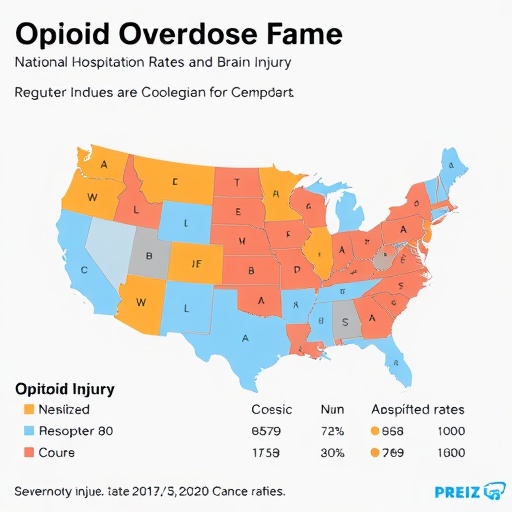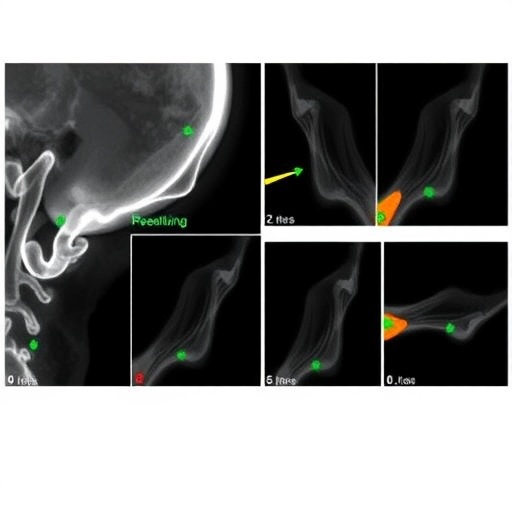PROTECT YOUR DNA WITH QUANTUM TECHNOLOGY
Orgo-Life the new way to the future Advertising by Adpathway
In an era where the importance of mental health has finally reached the forefront of societal awareness, the recent discussions emerging from the 2024 Biomedical Engineering Society (BMES) Education Summit have become pivotal in shaping how educational institutions perceive and address the mental well-being of their students. This summit brought together educators, researchers, and policymakers, all unified by a shared goal: to elevate mental health to the same status as physical health in the educational discourse. The insights shared during this summit highlight the critical intersection of mental health, academic engagement, and overall life satisfaction in students, especially in the demanding field of biomedical engineering.
The summit commenced with a resonant call to action: “Mental Health is Health.” This statement, while seemingly straightforward, underscores a drastic shift in how mental well-being is integrated into the educational framework. As students face unprecedented levels of stress and anxiety, recognizing mental health as an essential component of their educational journey is imperative. This perspective challenges long-standing notions that categorized mental health as secondary to physical health, emphasizing instead that comprehensive health includes both aspects as equal parts of the student experience.
Among the noteworthy presentations was a data-driven analysis of the increasing prevalence of mental health issues among students in technical fields. Statistics shared at the summit indicated a significant rise in reported anxiety and depression levels among engineering students over the past decade. As such data was presented, it became glaringly evident that existing support structures within universities are often inadequate. Educational leaders voiced concerns regarding the effectiveness of current mental health resources, suggesting a need for a paradigm shift in how institutions design and deliver these support systems.
Interactive sessions at the summit explored various innovative strategies to embed mental health initiatives within academic curricula. One prominent suggestion was the integration of mental health education into foundational courses. This approach would not only raise awareness but also normalize discussions around mental health among peers, thereby reducing stigma. By fostering an environment where mental wellness is openly discussed, institutions can cultivate a culture of support and understanding, encouraging students to seek help when needed.
Furthermore, the summit highlighted the potential for technology to augment mental health support. Discussions focused on the development and implementation of mental health apps that offer real-time assistance and resources tailored specifically for engineering students. Such platforms can bridge the gap between traditional counseling services and the modern student’s lifestyle, providing an accessible outlet for coping strategies, mindfulness exercises, and emergency support. The emphasis fell on ensuring these technologies are user-friendly and readily accessible, thereby enhancing their utility in crises.
Another critical topic addressed during the summit was the role of faculty and staff in promoting mental health awareness. Educators are often on the frontline, interacting with students daily, and can play a significant role in identifying signs of mental distress. Consequently, professional development programs focused on mental health literacy have emerged as essential. These programs equip faculty with the skills to recognize mental health challenges and to respond with empathy and appropriate referrals.
Peer support was also emphasized as an underutilized resource in promoting mental well-being among students. Programs that train students to become peer counselors were discussed, highlighting the relatability and comfort that comes with shared experiences. By empowering students to support one another, institutions can leverage the natural social networks within student communities, fostering a sense of belonging that is critical for mental health.
Mental health strategies discussed at the summit were not limited to awareness and support; they also included proactive measures to minimize stressors associated with the academic workload. Adjustments in grading policies, flexible submission deadlines, and mental health days were suggested as practical steps institutions could take to alleviate the pressures faced by students. By prioritizing mental health within academic structures, universities can enhance student performance and overall satisfaction.
The narrative surrounding mental health is continually evolving, and the insights from the BMES Education Summit reflect a growing understanding of its significance. Keynote speakers emphasized that addressing mental health requires a collective effort from all stakeholders within the education system, including students, faculty, administrators, and policymakers. This multifaceted approach recommends a structure where mental health and education policy intersect seamlessly, fostering environments where students can thrive both academically and personally.
As the final discussions of the summit concluded, a unified message emerged: institutional commitment is non-negotiable for fostering mental health in educational settings. Universities must not only implement services but also actively promote an ethos that prioritizes mental well-being. This commitment entails adequate funding, comprehensive training for staff, and ongoing evaluation of mental health programs to ensure they effectively meet student needs.
The momentum generated from the 2024 BMES Education Summit serves as a pivotal point for universities nationwide. By committing to enhance mental health support, educational institutions can significantly impact the lives of countless students. This initiative transcends the confines of academia, paving the way for a broader societal embrace of mental health as a fundamental aspect of overall health. The call to action is clear: when students thrive mentally, they are poised to excel in their academic pursuits and beyond.
In conclusion, the insights shared from the summit represent a vital shift in the approach to student mental health, painting a hopeful picture of the future in education. As these conversations gain traction, there is potential for a revolutionary change in the perception of mental health, creating a more supportive and aware educational environment. This evolution is necessary to ensure that future generations of students find not just success in their careers but also fulfillment in their personal lives.
With continued advocacy, innovative practices, and a commitment to prioritizing mental health, the foundations laid at the 2024 BMES Education Summit will undoubtedly resonate throughout academia, making significant strides towards healthier student communities.
Subject of Research: Mental Health Support in Educational Institutions
Article Title: Mental Health is Health: Insights for Supporting Student Mental Health and Well-Being from the 2024 BMES Education Summit
Article References: Jensen, K.J., Labazzo, K.S. Mental Health is Health: Insights for Supporting Student Mental Health and Well-Being from the 2024 BMES Education Summit. Biomed Eng Education (2025). https://doi.org/10.1007/s43683-025-00190-w
Image Credits: AI Generated
DOI:
Keywords: Mental Health, Education, Student Well-Being, Support Systems, Biomedical Engineering, Summit Insights, University Policies, Peer Support, Mental Health Awareness, Technological Solutions.
Tags: academic engagement and mental healthbiomedical engineering education challengesBMES Education Summit insightselevating mental health discourse in academiaintersection of mental health and life satisfactionmental health as part of comprehensive healthmental health in educationmental health policies in educationprioritizing mental well-being in studentspromoting mental health among studentsstress and anxiety in studentsstudent mental health awareness


 7 hours ago
12
7 hours ago
12





















 English (US) ·
English (US) ·  French (CA) ·
French (CA) ·